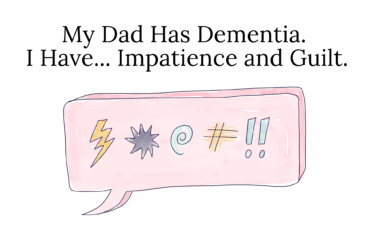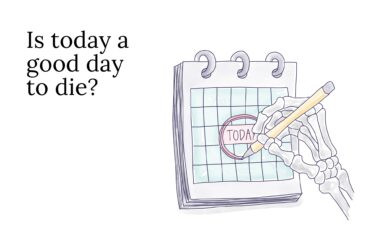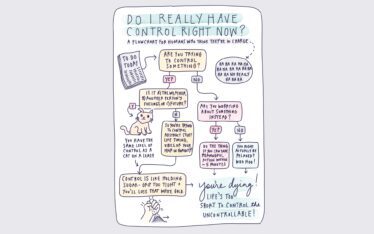No self-respecting blog post about meaning starts without a quote from holocaust-surviving psychologist Victor Frankl (yes! the guy who wrote the most excellent Man’s Search for Meaning): “The question can no longer be ‘What can I expect from life?’ but can now only be ‘What does life expect of me? What task in life is waiting for me?’.
I’ll give you a second to re-read that, catch your breath, and then come on back to me.
Frankl believed that a meaningful life is ripe with action, infused with responsibility and accountability to find out what our lives are expecting from us… what our futures are expecting from us.
Are you also mesmerized by this notion? I have 1,933 Mondays left (give or take, hopefully give) in life; are those Mondays gathering a quorum and making a list of “Things We Expect from Her Before She’s Gone for Good or Else It’ll All Have Been Monumentally Meaningless”?
How do we know what our lives expect of us, what task in life awaits us? And how does this connect to meaning? And why are there so many questions?
A quick definition of meaning, just so we’re all on the same page:
Meaning is one of the cornerstones of well-being (according to Marty Seligman, the father of positive psychology), and it isn’t just sought after in the haze of a dramatic event, like Frankl surviving the horrors of the holocaust. Our desire for meaning is a fundamental part of being human, helping us to make sense of even the most banal everyday occurrences (like why Rick got the promotion we were hoping for or why our teenager is acting like a martian). We’re wired to make sense of things (even things that might not ever make sense) and then make meaning out of them.
Meaning has been defined by researchers as “a cognizance of order, coherence, and purpose in one’s existence, the pursuit and attainment of worthwhile goals, and an accompanying sense of fulfillment.”
Michael Steger (“Mr. Meaning” in my mind) penned the best definition of all time: “Meaning provides us with the sense that our lives matter, that they make sense, and that they are more than the sum of our seconds, days, and years.”
Determining what our lives “expect from us” is precisely what makes life meaningful. The process of exploring where we might be able to make a difference… of striving to achieve things that really matter to us… of finding our next calling… of quizzically looking up at the sky and trying to connect to something bigger than us… of asking (usually forlornly and late at night with a sloppy second glass of Chardonnay in hand), “am I doing what I’m supposed to be doing, like really?”… all these things form the foundation of meaning. It’s not about solving the puzzle or equation of what life expects of us — as though there was an Official Right Answer — it’s the act of FIGURING IT OUT that wrings the meaning out of life. For most of us, this noble mission of ascertaining what our lives have in store for us is an ongoing pursuit. Times change, we change (as we age our priorities change anyways), and even if we knew in 2012 what “task in life was waiting for us,” the task would likely have morphed into something unrecognizable by 2022 anyways. Acknowledging that I’m not always supposed to KNOW what life expects of me in the moment feels like a relief. I don’t have to know in the moment, but I do have to commit to sniffing it out, exploring, piloting (as my friend Sesha says, when you pilot something it’s okay of it goes awry!), growing in the direction of the sun. Meaning rarely lands in our laps; we have to make it.
Meaning vs. Pleasure: Who Wins?
The pursuit of meaning and engagement are more predictive of life satisfaction than the pursuit of pleasure. The “full life” provides more sustainable satisfaction, whereas the “empty life” of pleasure-seeking often wanes (okay so by way of example, picture the cliché of a rich douchebag who has weekly caviar- and Champagne-soaked parties in his yacht, en route to the island he owns… but he goes to bed at night in his 17-room château feeling cavernously hollow on the inside. I feel bad for calling him a douchebag, because he’s probably profoundly lonely and we all know loneliness kills. Poor Richy Rich. He needs a meaning intervention.).
Furthering the discussion of Meaning vs. Pleasure… In his book Yes to Life: In Spite of Everything, Frankl presented this fabulous metaphor:
Let us imagine a man who has been sentenced to death and, a few hours before his execution, has been told he is free to decide on the menu for his last meal. The guard comes into his cell and asks him what he wants to eat, offers him all kinds of delicacies; but the man rejects all his suggestions. He thinks to himself that it is quite irrelevant whether he stuffs good food into the stomach of his organism or not, as in a few hours it will be a corpse. And even the feelings of pleasure that could still be felt in the organism’s cerebral ganglia seem pointless in view of the fact that in two hours they will be destroyed forever. But the whole of life stands in the face of death, and if this man had been right, then our whole lives would also be meaningless, were we only to strive for pleasure and nothing else — preferably the most pleasure and the highest degree of pleasure possible. Pleasure in itself cannot give our existence meaning; thus the lack of pleasure cannot take away meaning from life, which now seems obvious to us.
Connecting the dots of meaning to death (just for fun):
How do we relate this discussion to Memento Mori… the undercurrent of all our discussions here at Four Thousand Mondays (that life is finite and therefore precious)? Psychotherapists say that we create our realities and meanings “in the teeth of the constant threat of nonbeing and meaninglessness.” (Now there’s a ray of sunshine for you.)
Welcoming the truth that we are going to die helps us NOT waste our lives on meaningless activities. Viktor Frankl stated that death is not just a factor in a meaningful life, but also a driver — a point that holds significant weight coming from a guy who lost his parents, brother, and pregnant wife in the concentration camps. By deliberately tackling the tough existential questions, we create opportunities for greater meaning.
Existential psychologist Paul Wong takes this one step further by articulating that “we dread a meaningless life as much as we dread the terror of death.” In our human quest to be more than mere mortals, it involves a desire to live deeply. Death awareness can create deep meaning and appreciation in life. Addressing existential topics like death, and finding meaning through that process, is a reality and recommended necessity for the average Joe and Jane.
So now what?
Researchers have found that people who are more in touch with their true selves (i.e.: that person who you really are deep down, not the version of yourself you present to the world on zoom) typically find their lives to be more meaningful. Ten points for authenticity! How can you get in touch with that “true you”?
Studies have shown that older people with a strong sense of meaning and purpose in their lives are less likely to die than those who fail to find meaning. How can you build meaning and purpose before you get to the “old age” zone and put your life at risk?
I wrote about the 10 Things People With Meaning-Full Lives Do, so if you’re all jacked up on this meaning-making mission, that’ll keep you busy for a while. What resonates with you from that article?
Above all, sit with Frankl’s questions of ‘What does life expect of me? What task in life is waiting for me?’. You don’t have to know right now, but you do need to set out on the path to answer the questions.
And for an equally glib + sobering finale, let’s let Nobel-prize winning philosopher Albert Camus drop the mic: “The literal meaning of life is whatever you’re doing that prevents you from killing yourself.” Okay then! Another Monday down, not dead yet. Sounds meaningful to me.







